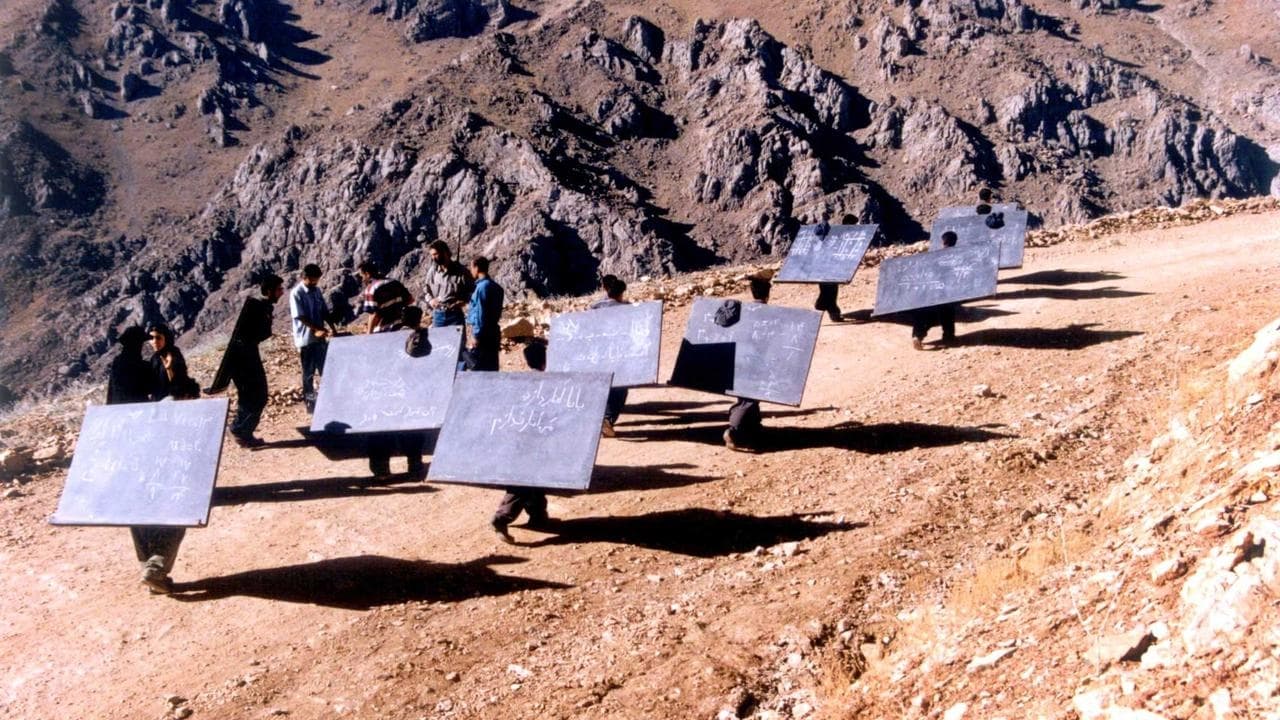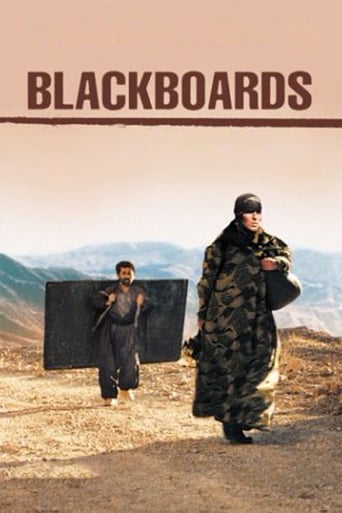Infamousta
brilliant actors, brilliant editing
SparkMore
n my opinion it was a great movie with some interesting elements, even though having some plot holes and the ending probably was just too messy and crammed together, but still fun to watch and not your casual movie that is similar to all other ones.
InformationRap
This is one of the few movies I've ever seen where the whole audience broke into spontaneous, loud applause a third of the way in.
Sameer Callahan
It really made me laugh, but for some moments I was tearing up because I could relate so much.
buonanotte
It must hard to talk about ignorance, poverty and war without being realistic. I reckon that, most of everything, this film is "realistic". It is undeniable that the settings, the characters and the issues belong to the director's background. She's been able to give "a hint of poetry" thanks to several touching and clever shots (For instance: A family that finds protection under a blackboard). I'm afraid that this film looses part of its potential because of its hybrid nature. It's not a drama, but it's not a documentary either. There are few stories crossing each other, but it is not complex enough to consider it a "Magnolia-style" thing. Finally (and this is what the film seems to be about), there's a teacher who dreams to heal his country with education but ends up facing the bitterness of a failed relationship. Nevertheless I truly appreciated the very last scene, that is worth 2 points in my final vote.Iacopo Destefani
Rob Brown (cinephiliac)
Blackboards is at its best when considered a dreamy, surreal take on real-world issues. It's a shame though that the film's style doesn't match it's content – if it had then it could have been truly affecting and memorable. As it is, it pairs the visual and conceptual silliness of men running around with blackboards strapped to them, and the visual and conceptual non-silliness of innocents meeting trouble on the hills of the Iran/Iraq border, which confuses the message. Further, shooting the otherwise farcical adventures of the blackboaders in the (ever popular) faux-documentary realism style undermines Samira Makhmalmaf's attempt to consider issues such as imprisonment, gender equality, education and communication, which are all jumbled around in the text fairly loosely, and not in the regimented way the style would have enhanced.Not only are these issues trampled on by the blackboarders, but the characters are not exactly equipped with the faculties to make them engaging for 85 minutes. They are moronic, moribund individuals, trapped on empty endless hillsides or engulfed in smoke which might as well be a metaphor for their foresight. They are not interesting. The trouble is it's unclear whether the director is mocking them or pitying them. One assumes the former, but unfortunately the message is, like the writing on the boards, incomplete.
David
I understand the vigorous debate Samira Makhmalbaf's BLACKBOARDS, has generated, but I'd also say that I loved this very demanding but often moving film - a remarkable achievement for a very young, but already accomplished filmmaker. Watching her career develop will be quite a treat.Shot with hand-held cameras and featuring a Kurdish cast of non-actors, BLACKBOARDS is very slowly paced, with a rambling quality that captures the aimless down time of everyday life. However the restless camera work also fills the film with an unceasing tension, gradually revealing the desperation filling the stateless existances of the many nervous characters.The politics of the region are an ever-present backdrop to the story, and unfortunate political machinations render both education and basic survival an arduous complexity - to live and to gain even the most basic of educations are made into luxuries, which - even in desolate and strife-torn landscapes - some are willing to die for.A handful of moments stood out for me: the scenes set in the river camp showcase the warmest of human interactions, and the final scene is remarkably beautiful.This very rigorous film (superficially reminding me of both Abbas Kiarostami and Tsai Ming-liang) nonetheless had me hooked.
Ruby Liang (ruby_fff)
BLACKBOARDS is a human story - an arduous one at that. It affirms the tenacity of human spirits. Its hard medicine content could be uneasy for some to bear. At its core, there is warmth a-glowing beneath it all. Writer-director Samira Makhmalbaf is a true artist - she included subtle visual poetic accents. Shooting along the rugged terrain of Kurdistan, nearing the border between Iran and Iraq, it's barren of vegetation, full of treacherous rocks as people traverse the steep mountain paths and windy troughs. I really appreciate a particular detail scene: from the held wide-shot of a group of teachers with blackboards strapped to their backs, standing abreast at a mountain road clearing - paused, camera quietly cuts to a close-up of a pair of feet with 'billowing' fabric of the trousers. We need no sound effect of whistling wind, the shot was at once poetic and effective. How succinct and direct in expressing the moment, Samira did.
For a 20-year old woman Iranian director in her second feature film, Samira Makhmalbaf is awesome - sensitive, perceptive, mature in her viewpoint, with bold persistence against all odds to complete her project. Keen awareness of the state of affairs her film is focused on - not so much as making a political statement, she's more in earnest depicting simple everyday things: the mundane human needs of the wandering Nomads yearning to be home; the young 'mule' boys struggling for meager living yet looking out for each other; teachers seeking pupils in exchange for food. It's philosophical: through the course of the journey, the fate of the blackboards goes through transitions as situations demand - even "let go." Survival and adaptability co-exist.Samira has a good mentor - her father Mohsen Makhmalbaf, who is a collaborator on the writing of "Blackboards" and her first feature, "Apple, The" 1998 (a bold unique storytelling in docu-drama format). She also has the expert assistance of cinematographer Ebrahim Ghafori, who previously worked with her on "Apple." Bahman Ghobadi is the actor who portrayed the teacher who ran into the expedition of the young 'mule' boys with contraband goods on their backs. He was the writer-director-producer of the film "A Time for Drunken Horses" 2000, and here in "Blackboards," it's déjà vu - this time is not of snowy setting, but included brief dramatic storyline between him and the boys. Reality is still bitter truth, but Samira kept the element of humanity intact. Other efforts from the Makhmalbaf family include: "Day I Became A Woman, The" 2000 by Marzieh Meshkini, Mohsen's wife. "How Samira Made the Blackboards" (it'd be interesting to see how Samira shot the film in such arduous circumstances and with mostly non-professional cast with wide age differences) by Mezssam Makhmalbaf, Samira's brother. Father Mohsen Makhmalbaf did "Gabbeh" 1996 and "Kandahar" 2001.More Iranian films? Try writer-director Majid Majidi's "Baran" 2001 - a poignant story about a young man (17-year old) in Tehran, how he matures through his deeds in trying to help an illegal Afghan of a poor family - it's a rich human story from the filmmaker who gave us "Color of Paradise" 2000 and "Children of Heaven" 1999.

